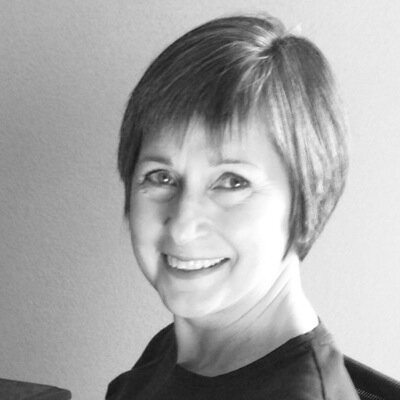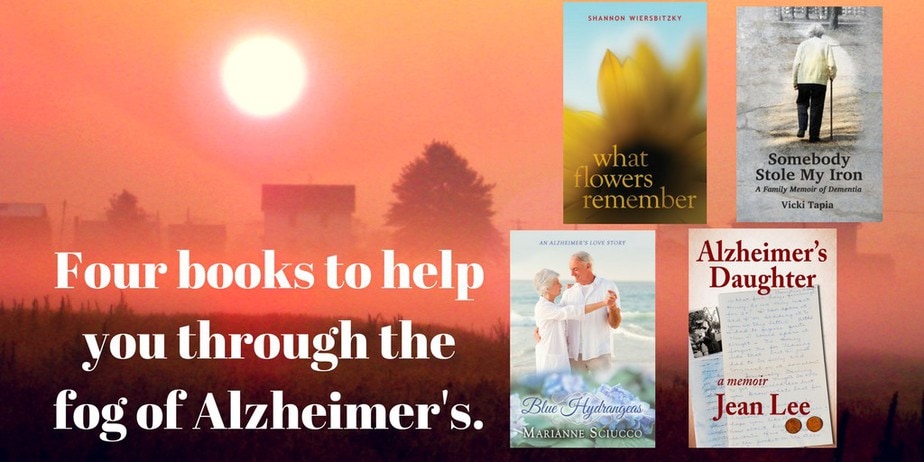 By Marianne Sciucco
By Marianne Sciucco
We are AlzAuthors, four daughters who have experienced the pain and loss of a loved one with Alzheimer’s disease or dementia. We know the pain of being forgotten. We have all witnessed decline. Most of us have provided countless hours of caregiving.
We chose to write about our personal and painful dementia stories to help others who may be on their own journeys. Our stories can serve as guides to the disease process, a caregiver’s handbook, or simply the catalyst to much needed conversations among families.
Although we haven’t met personally, we found each other through our books and became friends. Together we advocate for those with dementia and their families, providing education and awareness of a disease projected to affect 131 million people worldwide by 2050.
One year ago, we formed a collaboration to pool our talents, skills, and resources to raise awareness during June, Alzheimer’s and Brain Awareness Month. This campaign resulted in exposure across dozens of Alzheimer’s and dementia websites and blogs and social media, #AlzAuthors. We also held a Facebook event that has grown into a Facebook group.
We have come together again to continue our mission to educate and enlighten. Today we are launching a new blog, AlzAuthors, a space where those writing about Alzheimer’s and dementia can share their stories. Throughout the month we will feature a different author each day who will share what motivates him or her to write about Alzheimer’s and dementia. Our goal is to increase exposure of their books and blogs, and to enable caregivers to discover resources that may help them get through their challenging times.
Our blog is also an opportunity for caregivers and others to share their stories. Let’s start a conversation!
Follow us on AlzAuthors blog, our AlzAuthors Facebook group, and #AlzAuthors on Twitter. Please share your stories. We’re waiting to hear from you.
AlzAuthors is:
Jean Lee, author of Alzheimer’s Daughter, cared for her mother and father, both diagnosed with Alzheimer’s on the same day. “I wrote the book I needed to read while caregiving for my parents,” she says. Jean lived only one mile from them, and her only sibling, a sister, lived 1,000 miles away. “She suggested I keep a journal of things that concerned me about our parents’ health and safety,” Jean says. “The journal allowed us to be proactive rather than react to a crisis. I only shared my parents’ illness with a handful of friends and coworkers. I remember them telling me I should write a book about this dual decline. I was too busy trying to stay afloat to give any thought to writing about the experience, except in my sister-journal. However, less than one week after my mother died, while visiting with my dad, I saw he had no memory of Mom or their 66-year marriage. I was stunned, and at that point came to believe my journal could become the core of a book honoring my parents’ love story and documenting their simultaneous decline.” Her memoir Alzheimer’s Daughter is a beautiful but poignant tribute to her parents and a source of support for caregivers.
Vicki Tapia also cared for both parents. Her mother had Alzheimer’s and her father had Parkinson’s- related dementia. Vicki chronicled the days she spent with her parents caring for them in their home and then throughout assisted living facilities and nursing homes until their deaths. These diaries became the foundation of her book, Somebody Stole My Iron: A Family Memoir of Dementia. Filled with personal lessons learned along the way, ideas and tips for managing the day-to-day difficulties of dementia, and useful information from experts within the field of Alzheimer’s research, this memoir is a must read for caregivers. “While I cannot tell you it was easy or even pleasant traveling down that rabbit hole of dementia,” Vicki says, “for me it was a time of personal growth, as we maneuvered through the disease’s many challenges. Interspersed with those challenges were moments of tenderness and brief, fleeting times of lucidity in one or the other parent that I still cherish. I learned to parent my parents with patience and compassion; caring for them, much as they’d cared for me as a child, so many years ago.”
Marianne Sciucco is a registered nurse who assisted hundreds of families on their dementia journeys and watched three aunts succumb to the disease. She recently became the caregiver to a family member newly diagnosed with mixed dementia. Her novel, Blue Hydrangeas, an Alzheimer’s love story, is based on many couples she worked with, one in particular. “As a nurse, I’m the keeper of many stories,” she says, “which really are about the human experience, and because I write and have those skills, and I desire to do so, I feel I have an obligation to tell these stories.” It is ironic she is now living out a dementia story of her own. “Alzheimer’s is always on my radar, but I did not expect this person to be the one. Suddenly, I am the one with all the answers, all the responsibility. It’s overwhelming. The wealth of knowledge I have gained from my years as a nurse and writing about it keeps me sane.”
Shannon Wiersbitzky witnessed the decline of her beloved grandfather from Alzheimer’s. “I spent my childhood summers with my grandparents in a small town in West Virginia, not totally unlike the fictional town of Tucker’s Ferry in my book,” she says. “As a result, my grandparents became like second parents. When I was in my twenties, my grandfather was diagnosed with Alzheimer’s. I hoped and prayed that he wouldn’t forget me. But of course, the disease doesn’t work that way, and I was forgotten along with everyone else he loved. The moment I realized he no longer knew who I was is something I will never forget. It broke my heart. And it was that nugget which inspired my middle-grade novel, What Flowers Remember.” In the drama of Alzheimer’s, children are often overlooked, their observations and points of view neglected. What Flowers Remember helps open a discussion with young people. It is a heartwarming story of love and loss, of a young girl coming to understand that even when people die, they live on in our minds, our hearts, and our stories.
These are our stories. Are you an AlzAuthor? Please share your stories in this space, in our AlzAuthors Facebook Group, or on Twitter with #AlzAuthors.


